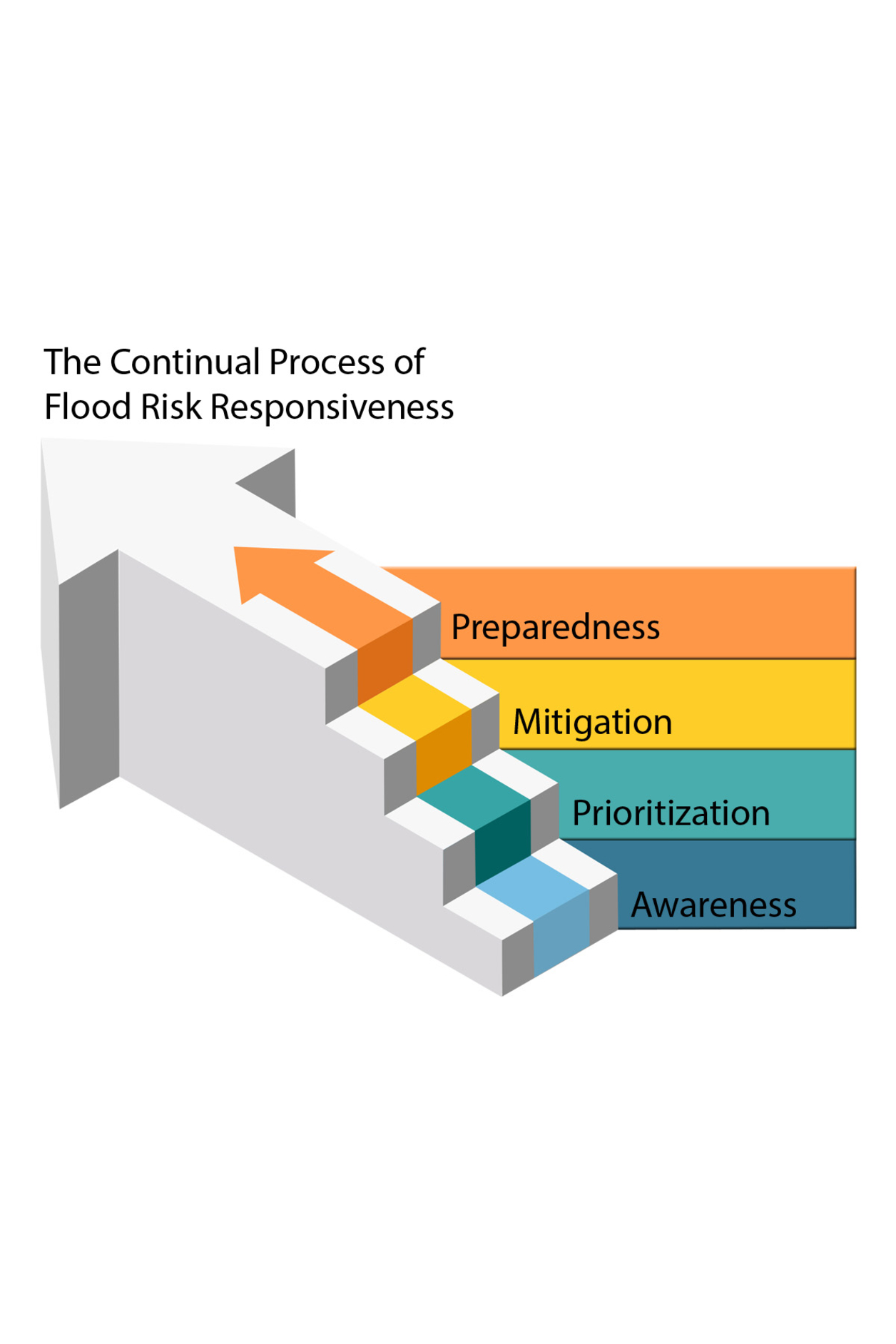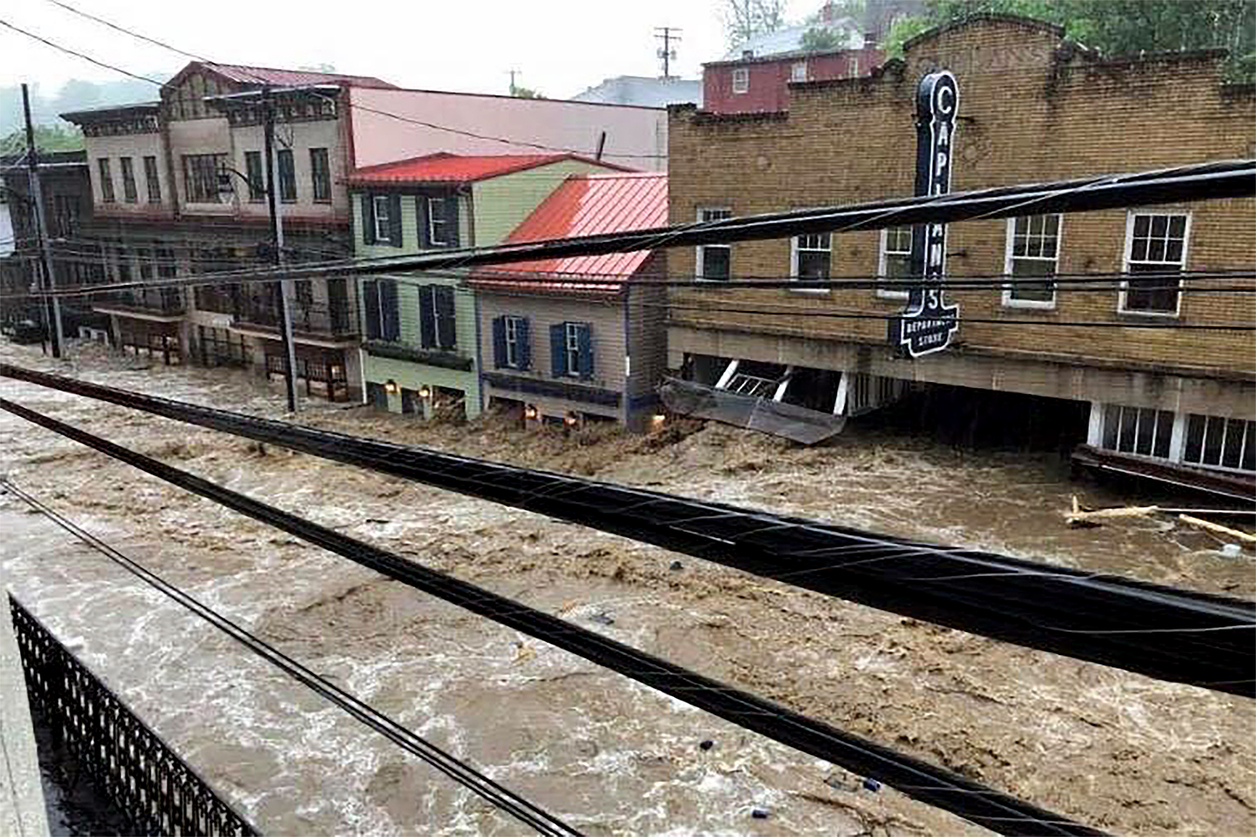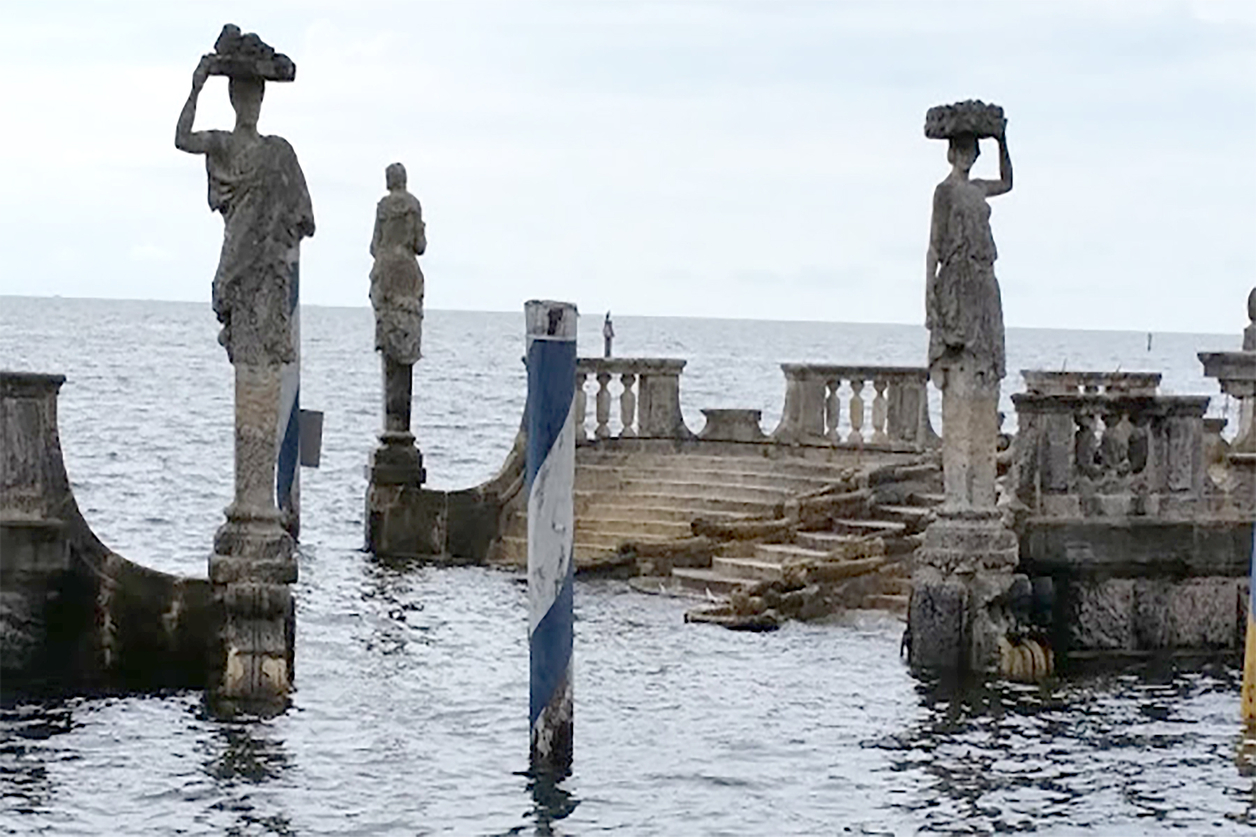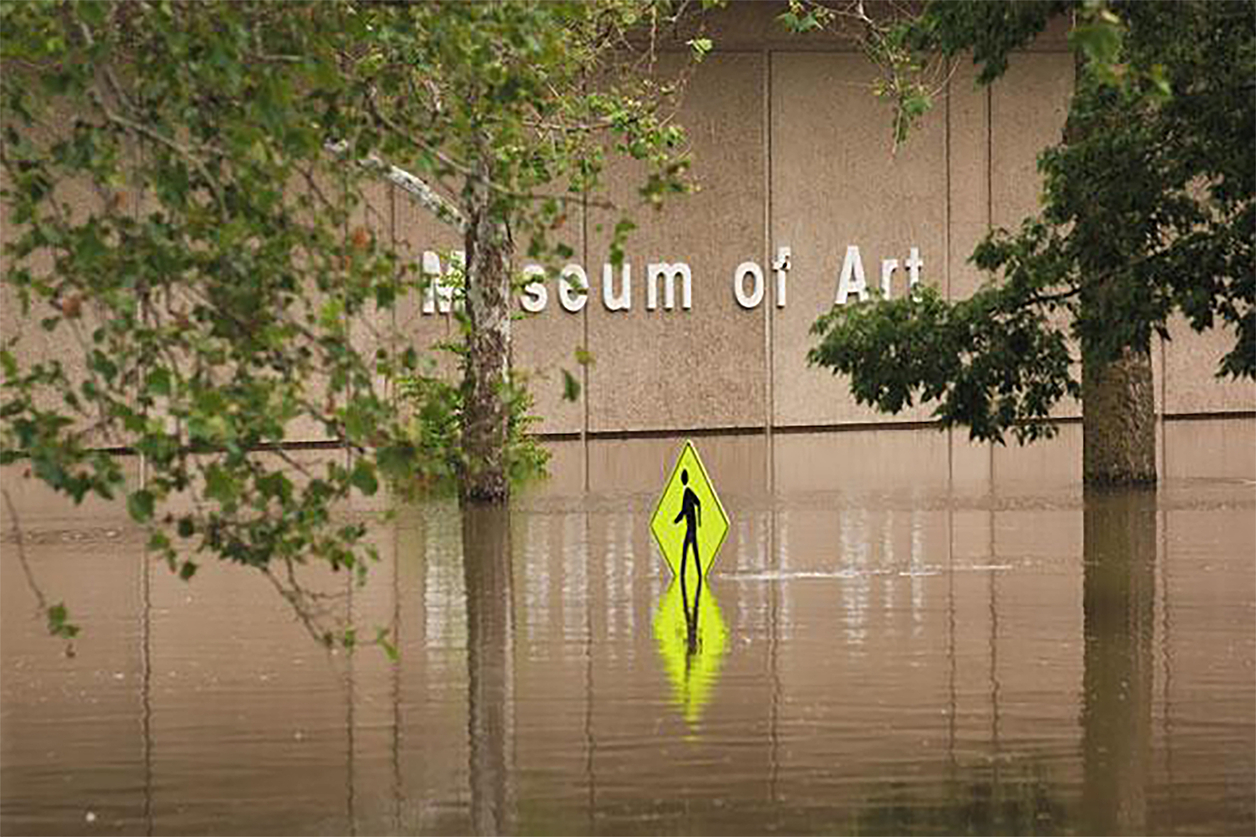Thesis: Meris Westberg
Flooding has become the most frequent, costliest natural disaster in the United States in the age of Climate Change. With improved flood risk modeling, we now know that more cultural heritage sites are at risk of significant flooding than previously estimated by FEMA, but flood risk responsiveness among sites remains alarmingly low. Flood risk responsiveness is the continual process of attaining and maintaining good flood preparedness. The process begins with strong risk awareness, is propelled by prioritization, and culminates in mitigation. Poor flood risk responsiveness can be largely attributed to insufficient risk communication by disaster management agencies, as well as minimal adaptation guidance tailored to preparing historic structures at publicly accessible cultural heritage sites.
By conducting a national survey of heritage site stewards on flood risk responsiveness, I found that basic flood risk awareness is severely lacking among most steward subgroups, that prioritization depends more on budget size than risk status, and that the majority of mitigation steps taken among stewards are limited to superficial actions. To improve responsiveness at cultural heritage sites, policy makers and stewards across disciplines must better communicate risk and establish more clear, affirmative flood adaptation protocols to prepare historic structures, and in turn collections, for flooding disasters before irreplaceable cultural heritage is needlessly damaged or lost.






